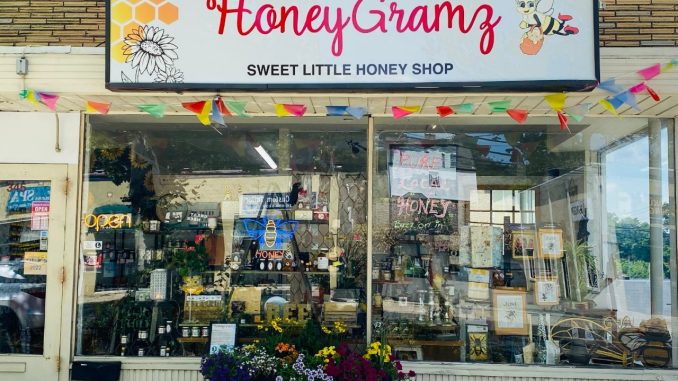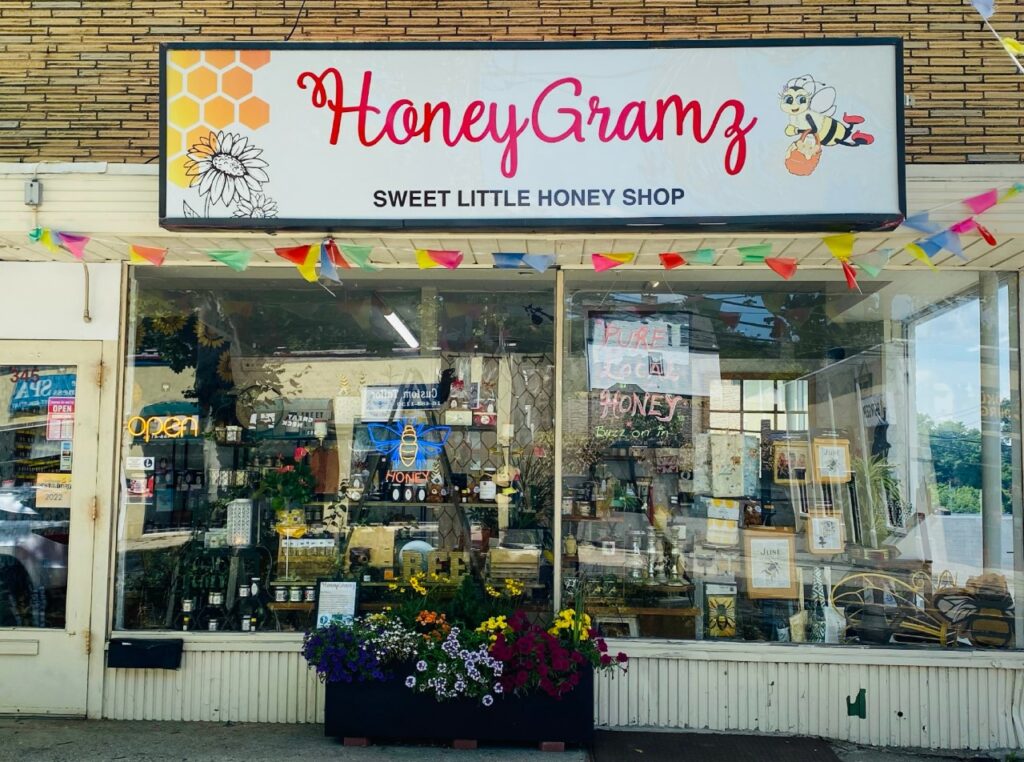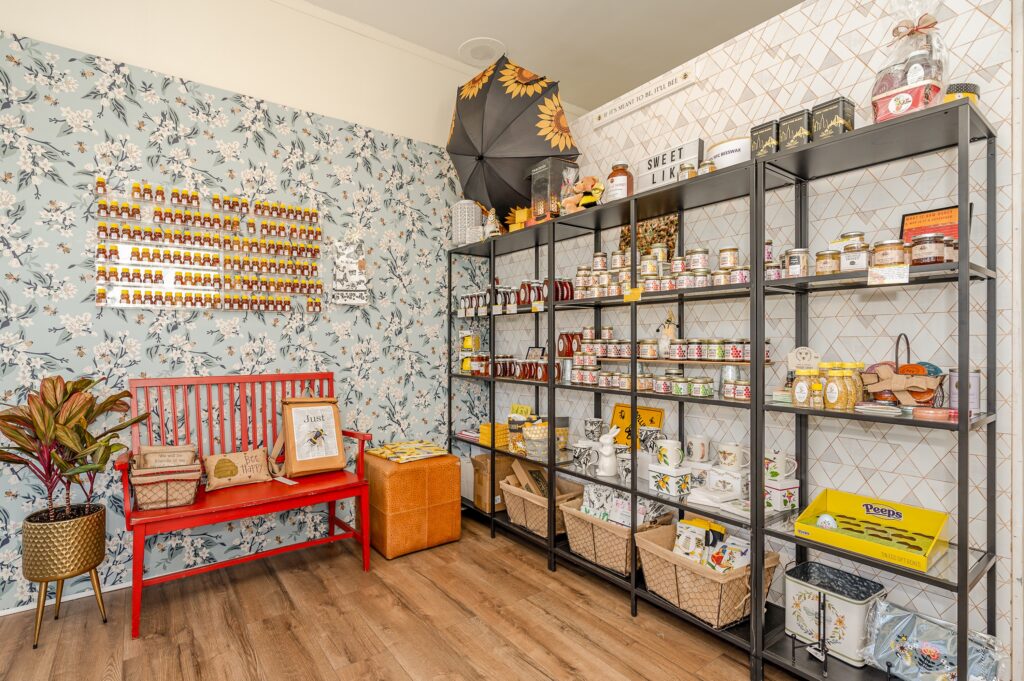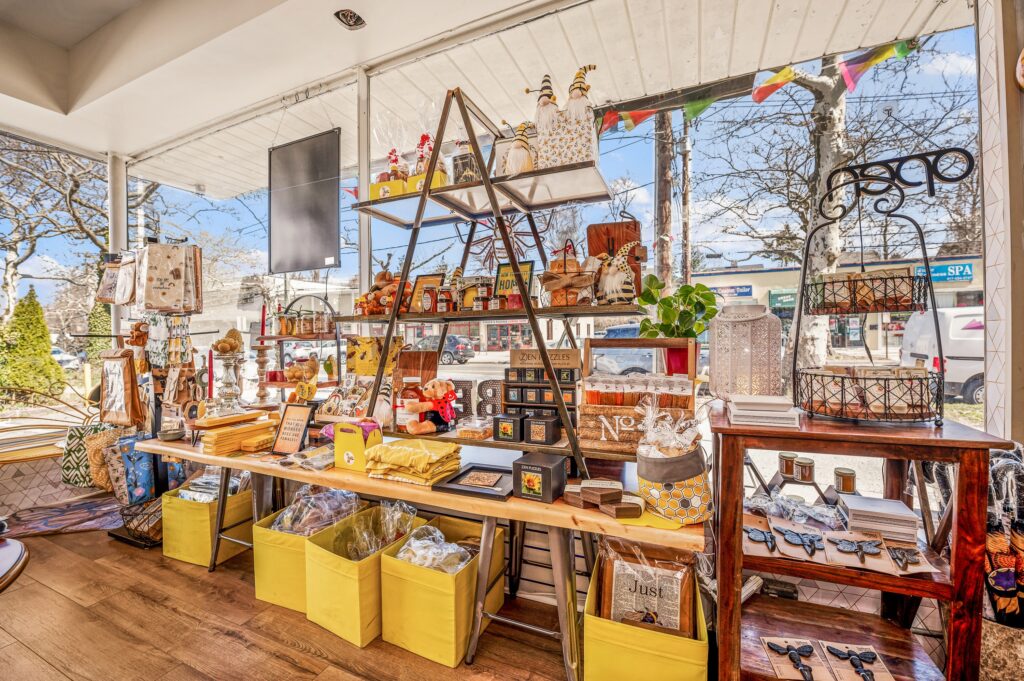
Ruth Harrigan’s path to queen bee has been far from conventional. When her daughter was nine years old, she asked for a dog for her birthday. Instead of a furry companion, however, the family opted for chicks. While the chicks were certainly adorable, they had no idea what they were doing, so Harrigan started researching how to care for them.
‘‘And when I was doing research on how to raise chickens, I stumbled upon a petition that said, please help us legalize beekeeping in New York City… I thought, hey, you know, that’s a good cause, so I signed it. The first and only petition I ever signed online.” Harrigan says.
The earliest evidence of human beings making use of honey is a painting of a woman gathering honey from a wild hive. This painting is found on a cave wall in Spain and is estimated to be between seven thousand and 15,000 years old. Ancient Egyptians routinely used honey and bees, and hives have been found depicted in their hieroglyphics. People throughout the ancient world used honey for medicinal purposes. Hippocrates used honey-based cures for a multitude of ailments, and Persian physician Al-Razi advised using honey and vinegar as a remedy for skin conditions and gum disease. Honey is still used for dressing wounds and treating coughs and sore throats.
After signing the petition, Harrigan’s curiosity led to a beekeeping course in Manhattan. “I went and took a crash course in beekeeping and I immediately fell in love. When the course ended in March 2010 beekeeping became legal at the same time, it was great, the timing was perfect. We started with two hives in the neighborhood.”
The hives produced a small amount of honey, but the joy Harrigan got from them more than made up for the effort. All was well, until she was laid off from her Wall Street career in finance after more than 20 years. At the same time, her husband was going through grad school. “Then my husband said, ‘Well, why don’t you do something with the bees?’ I didn’t know what to do with the bees other than just tending to them and extracting a little bit of honey for ourselves. But I actually started a beauty line, which I still carry.”
 Beauty products made from honey and beeswax have been around for thousands of years. Because honey is a humectant, it traps moisture next to the skin. It also contains calcium, copper, iron, magnesium, manganese, phosphorus, potassium, sodium and zinc, as well as antioxidants. It is also antibacterial.
Beauty products made from honey and beeswax have been around for thousands of years. Because honey is a humectant, it traps moisture next to the skin. It also contains calcium, copper, iron, magnesium, manganese, phosphorus, potassium, sodium and zinc, as well as antioxidants. It is also antibacterial.
Once she started seeing success with her beauty line, Harrigan then started selling her own honey.
“I was surprised at how interested people were in local honey that’s made in Douglaston. Every time I extracted it, I would go to local community markets and it would sell out very quickly.”
At this time, she was also teaching yoga to children. After one semester, two of her students gave her a gift. She wanted to do more than just give them a thank you note, so she started thinking about what she had to share with them. She wanted something unique. “I found these little bears and I said, I’m gonna go with my honey and give it to the girls with a cute label that said ‘thank you very much honey.’ That was my very first label. And I gave it to the girls and they absolutely adored them. So then I had all these bears. When someone’s birthday came, I put a label on it. ‘Happy birthday, honey.’ And when Christmas came, ‘Merry Christmas honey.’“ Thus, HoneyGramz was born.
The business used to operate out of a small office with no retail space. When the pandemic hit, people were finding the office and knocking on the door to see if they could buy some honey. They were clamoring for a retail space to be able to browse the products in person.

Harrigan came up with an ingenious solution. “So instead, we would roll out a little cart like a flight attendant. We’d bring it outside and then my customers would buy or pick it right from the little cart.”
Still, this wasn’t a permanent fix. HoneyGramz needed a home. “So when we were looking for larger space, there’s very few industrial spaces in Great Neck. There’s a lot of smaller retail spaces, but we do everything in house. We actually produce the honey, we bottle the honey, we package and we label we do everything right here on the premises. One day my husband was biking by and there’s a big for rent sign out here. He’s like ‘I think we found our space.’ I called the landlord right away. We came here and once I saw it, I said I need warehouse space, which is downstairs. And the bonus was a little shop. …It used to be a sign shop, so I said ‘I needed a sign!”
In addition to her own honey and beauty line, Harrigan’s shop sells single source varieties from all over the United States. These honeys all have different flavor profiles depending on what kind of flowers the bees were visiting. Bees are often brought to pollinate farm fields, creating honey from a single source of nectar. For example, if the bees are working a blueberry farm, “all the nectar that’s collected during that pollination period would be from blueberry blossoms. The blueberry honey is actually honey like that’s made from the nectar of those flowers. Not a flavor. I always tell my customers if you actually taste blueberry, like really strong blueberry it’s been added because pure blueberry honey is quite delicate.
You have a really little hint of it at the very end. If you take a small taste of each different variety of honey, then you really taste the essence of the difference in the location and the source of the honey, so it’s almost like wine tasting.”
 HoneyGramz continues to grow and address the needs of its customers. “This is my ninth year in business. About three years ago, a customer asked us if we had any ginger honey.
HoneyGramz continues to grow and address the needs of its customers. “This is my ninth year in business. About three years ago, a customer asked us if we had any ginger honey.
I’ve never even heard of it. So we did a little research after second and third customer asked for the same thing. That’s an infused line because we only have a pure honey. But this is pure honey with that added flavor to it. But we use all organic ingredients for we call it the superfood line. We use turmeric and all these herbs that’s been known for centuries that are good for your health: turmeric, lemon, elderberry, cinnamon. Since then we’ve added on and now we have 14 different flavors.”
Harrigan took the additional step to have these infusions O/U certified so that more of her customers are able to enjoy them. “Pure honey is kosher; It doesn’t need to be certified.
But once we add that extra ingredient (to create the infusion it is no longer kosher). People were dying to taste it but they couldn’t. So now that we are certified, everyone just came in and…they love the ginger, they love the turmeric, they love the elderberry. So the community really embraced us and we have regular customers here.”
HoneyGramz is located at 345 Great Neck Rd., in Great Neck, just north of Northern Boulevard. The shop is open Monday through Friday from 9 a.m. to 5:30 p.m. and Saturday from 10 a.m. to 2 p.m. Visit www.HoneyGramz.com to learn more.

